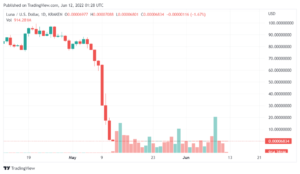
It is a widely acknowledged fact that many blockchains require large amounts of electricity to operate securely.
This downside is primarily associated with blockchains that use the proof-of-work (PoW) consensus mechanism — since they require large networks of power-hungry cryptocurrency mining rigs to work together to ward off attacks.
According to current estimates, the Bitcoin network alone consumes somewhere in the order of 142 TWh of electricity per year, releasing an estimated 67.51 megatonnes of CO2 into the atmosphere at the same time. This is just shy of the entire carbon footprint of Greece.
Unfortunately, many network participants consider this to be part and parcel of building a truly secure decentralized platform like Bitcoin’s decentralized payment network, or Ethereum’s decentralized application platform.
The amount of energy used by the Bitcoin network has seen it subjected to significant criticism over the years, and has even led to a Bitcoin mining ban in Iran — with Bitcoin miners in the country reportedly consuming a hearty chunk of the country’s energy production and contributing to its recurring blackouts.
Energy usage trend over past few months is insane https://t.co/E6o9s87trw pic.twitter.com/bmv9wotwKe
— Elon Musk (@elonmusk) May 13, 2021
Perhaps most prominently, Tesla Founder and CEO Elon Musk publicly slated the cryptocurrency over its “insane” energy usage and announced that Tesla would no longer be accepting payments in Bitcoin. He did, however, reveal that Tesla will resume accepting Bitcoin payments once it is powered by >50% renewable energy — which may already be the case according to some estimates.
But while it might take some time before Bitcoin or Ethereum achieve either a predominantly green mining network or switch to a more power-efficient consensus system, other projects have already begun to attack the problem from different angles.
Popcorn, a decentralized yield farming ecosystem, is looking to infuse positive social impact with one of the most rapidly growing use cases for blockchain technology — decentralized finance (DeFi). The project is attempting to lead an effective altruism movement in the DeFi space by helping to fund organizations that contribute to social good, such as those working on renewable energy, carbon capture, environmental education, open-source initiatives, and more.
As a yield farming solution, Popcorn allows users to automate their earnings across a variety of DeFi platforms using a system of secure smart contracts. It also includes a novel feature, where holders of the Popcorn Governance Token (POP) can vote on which organizations should receive a grant (funded by the platform fees). In short, it’s conscious DeFi through and through.
Brokoli is another platform looking to tackle the environmental impact of cryptocurrencies. It achieves this by building a so-called “green DeFi layer” on top of existing DeFi infrastructure, helping to maximize price efficiency and enable users to help mitigate the effects of climate change.
As a decentralized exchange, Brokoli allows users to maximize their capital efficiency while using slippage fees for positive climate action. In total 90% of the fees generated by the Brokoli network are used to positively impact the planet — whether that be through planting trees, funding renewable energy projects, donating to e-waste recycling charities, or something else.
With the environmental impact of cryptocurrencies increasingly coming into focus, there are more eyes on the issue than ever before. Given that the blockchain and cryptocurrency industry is built on the concept of building a better system, and has already proven to move deftly towards addressing its own shortcomings — it might not be long until climate-positive decentralized platforms are the norm, rather than the exception.
- 67
- Action
- announced
- Application
- Ban
- Bitcoin
- Bitcoin mining
- Bitcoin Payments
- blockchain
- blockchain technology
- Building
- capital
- carbon
- cases
- ceo
- change
- Climate change
- CNBC
- coming
- Consensus
- contracts
- cryptocurrencies
- cryptocurrency
- Cryptocurrency Mining
- Current
- decentralized
- Decentralized Exchange
- Decentralized Finance
- DeFi
- DID
- Earnings
- ecosystem
- Education
- Effective
- efficiency
- electricity
- Elon Musk
- energy
- Environment
- environmental
- estimates
- ethereum
- exchange
- farming
- Feature
- Fees
- finance
- Focus
- follow
- founder
- fund
- funded
- funding
- good
- governance
- Greece
- Green
- Growing
- Harmony
- HTTPS
- Impact
- industry
- Infrastructure
- Iran
- IT
- large
- lead
- Led
- Long
- Miners
- Mining
- months
- move
- network
- networks
- order
- Other
- payment
- payments
- planet
- platform
- Platforms
- PoW
- price
- Production
- project
- projects
- Proof-of-Work
- renewable energy
- Short
- smart
- Smart Contracts
- Social
- Social Good
- Space
- Switch
- system
- Technology
- Tesla
- time
- token
- top
- users
- Vote
- Work
- year
- years
- Yield











